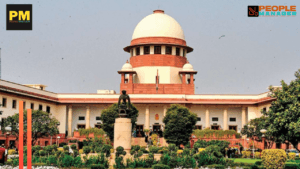Maternity Leaves are the Right of Women Employee : HP High Court
The purpose of maternity leave, according to a bench of Justices Tarlok Singh Chauhan and Virender Singh, is to preserve the honour of motherhood and to guarantee the welfare of the mother and her unborn child.

Maternity Leaves are Women Employees Right, Its Denial Violate Articles 39, 42 and 43 of Constitution: HP High Court
The Himachal Pradesh High Court has reaffirmed that all women are entitled to maternity leave, regardless of their job situation, in the case of State of HP v/s Sita Devi.
The purpose of maternity leave, according to a bench of Justices Tarlok Singh Chauhan and Virender Singh, is to preserve the honour of motherhood and to guarantee the welfare of the mother and her unborn child.
“The respondent in the instant case was a daily wage woman employee at the time of advance pregnancy could not have been compelled to undertake hard labour, as it would have been detrimental to not only to her health and safety but also to the child health, safety and growth. The maternity leave is a fundamental human right of the respondent, which could not have been denied. Therefore, clearly the action of the petitioner is violative of Articles 39 and 39D of the Constitution of India.”
When addressing a petition contesting the state government’s decision to deny maternity leave benefits and the subsequent benefit of conferring work-charge status after eight years of service, the HP High Court made this ruling. –
According to Article 21 of the Indian Constitution, read with Article 42, every woman employee, whether hired on a regular, contractual, ad hoc, or tenure/temporary basis, has a fundamental right to a reasonable amount of maternity leave (or paternity leave in the case of a male employee) and child care leave (CCL) to support motherhood and child care.
When addressing a petition contesting the state government’s decision to deny maternity leave benefits and the subsequent benefit of conferring work-charge status after eight years of service, the HP High Court made this ruling.
The government’s argument was rejected by a division bench made up of Justice Tarlok Singh Chauhan and Justice Virender Singh, who added, “The right to life under Article 21 of the Constitution of India includes the right to mother. The most natural event in a woman’s life is having a child.
Therefore, whatever is required to make it easier for a working woman to give birth to a child, the employer must show consideration and sympathy for her, and they must be aware of the physical challenges that a working woman faces in carrying out her job duties at the workplace while pregnant or while caring for the child after birth.
According to the facts, a woman employee gave birth to a child on May 30, 1996, and after taking three months of maternity leave, starting on June 1, 1996, she returned to work on August 31, 1996. Only because of her pregnancy and subsequent delivery was she only able to work 156 days out of the minimum 240 days required in a year.
The woman in the present case could not have been forced to perform hard labour because she was a daily wageworker at the time of her advanced pregnancy, the court stated. The respondent’s entitlement to maternity leave is a fundamental human right and could not have been refused.
- Pernod Ricard India introduces Cheers VRorld, an industry-first VR-powered onboarding experience in the Alco-Bev sector - February 11, 2026
- Jio-bp Appoints Sareeta Bhatikar as Chief Human Resources Officer to Steer Next Phase of Growth - February 11, 2026
- India Keeps Hiring as Global Markets Slow: Michael Page India Salary Report-26 - February 6, 2026









